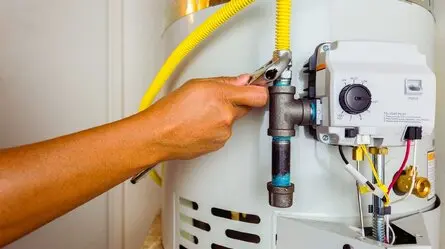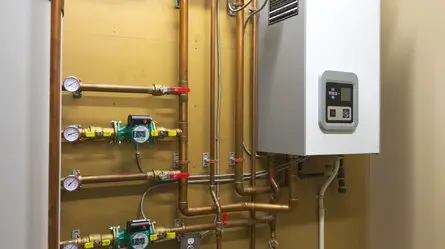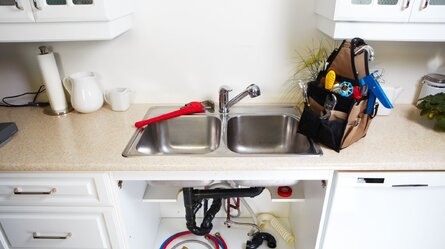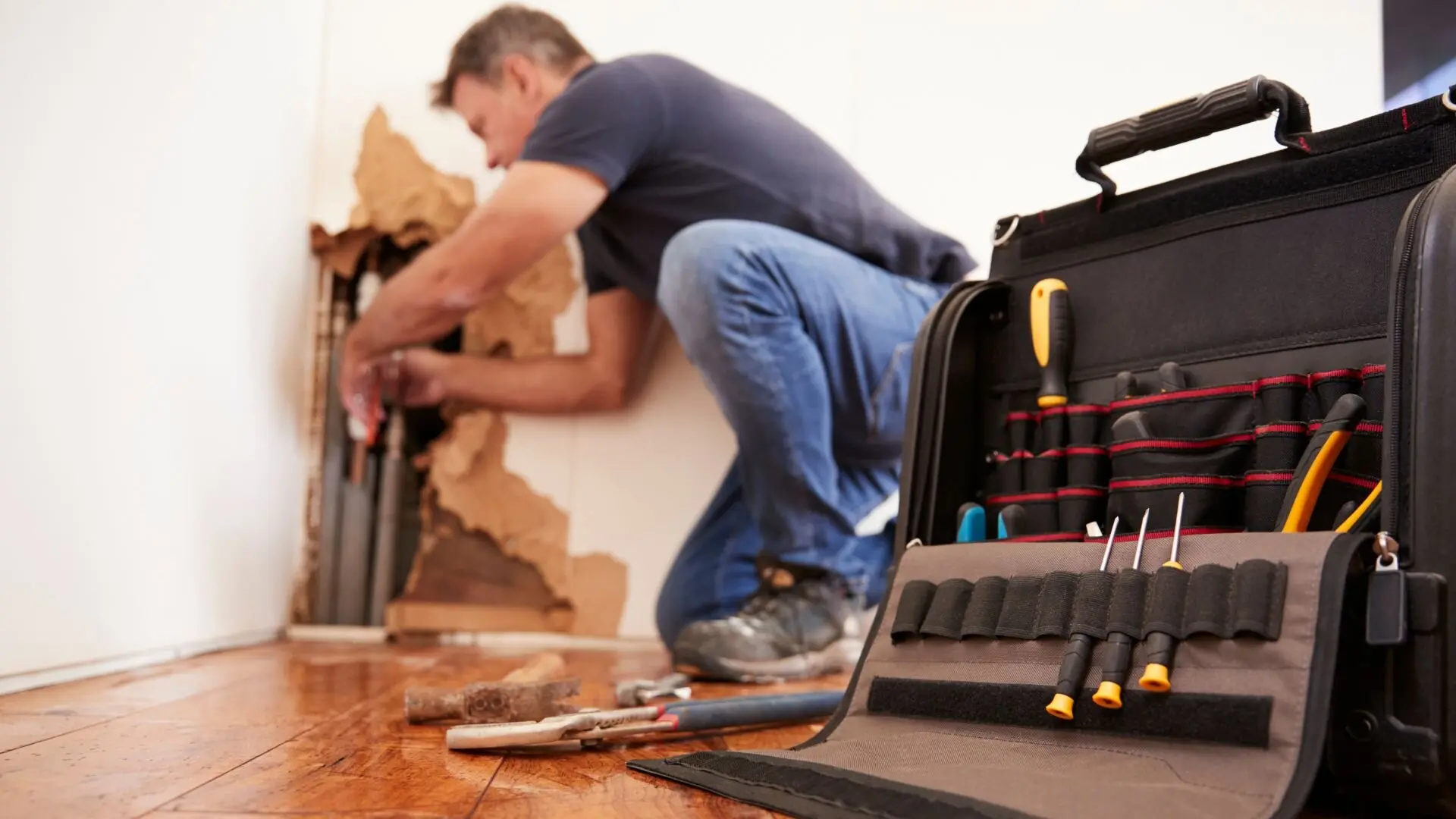
Dealing with plumbing emergencies like leaks, burst pipes, blocked drains, broken plumbing fixtures, and overflows can be stressful, especially when water damage threatens your home’s integrity. However, taking key precautions and preventative measures before the plumber arrives can significantly minimise the impacts. Following a few essential steps can reduce flooding risks and avoid costly repairs when plumbing issues arise.
We’ve put together five crucial steps for Perth homeowners to safeguard their property from water damage. By turning off your main water valves, unplugging appliances, moving valuables to safer spots, soaking up extra water, and addressing potential safety concerns, you can significantly cut down on damage before the plumber even gets there. We’ll guide you through these key prep actions, helping you respond swiftly when plumbing disasters hit.
Spending just a few minutes finding valves, unplugging electronics, and using towels can prevent costly repairs. Don’t leave it until the last moment—have a plan ready to tackle the risks. Follow these expert tips from seasoned Perth plumbers to steer clear of severe water damage and handle your plumbing emergencies with ease. By taking straightforward but crucial steps, you can protect your family, home, and treasures.
Avoid Costly Repairs: 5 Key Precautions Before the Plumber Arrives
Dealing with plumbing emergencies like burst pipes, leaks, and overflows can be extremely stressful. Water gushing into your home can cause thousands of dollars in damage if immediate action isn’t taken. Waiting hours for the plumber to arrive on the scene can seem like an eternity. However, there are several crucial precautions Perth homeowners and business owners can implement during this critical window to significantly reduce property risks.
Key actions like shutting off the main water valve, unplugging nearby appliances, and absorbing excess water with towels can help you avoid flooding. By following these best practices, you can minimise the damage substantially compared to standing helplessly by. We outline the top 5 precautionary steps experienced plumbers recommend to protect your home before the experts arrive.
Having a plumbing emergency action plan can spare you from numerous headaches, heartaches, and additional repair expenses when dealing with plumbing issues like burst pipes. Don’t leave yourself open to preventable water damage and electrical threats. Be ready to act fast before costs soar. With some straightforward but essential preparations, you can protect your home until the emergency plumber arrives.
1. Shut Off the Water Supply
The first crucial step in a plumbing emergency is to turn off your main water supply valve. This straightforward action can immediately lessen potential flooding in your house. It’s wise to locate and label your shut-off valve beforehand, so you don’t waste valuable time when something goes wrong.
You’ll typically find your main water shut-off near the front hose tap or water meter. It could be an outdoor curbside valve or an inside lever that stops water flow to your home. Turn this valve 90 degrees to halt the water. Make sure you’ve switched off the correct one, as some homes have several shut-off points.
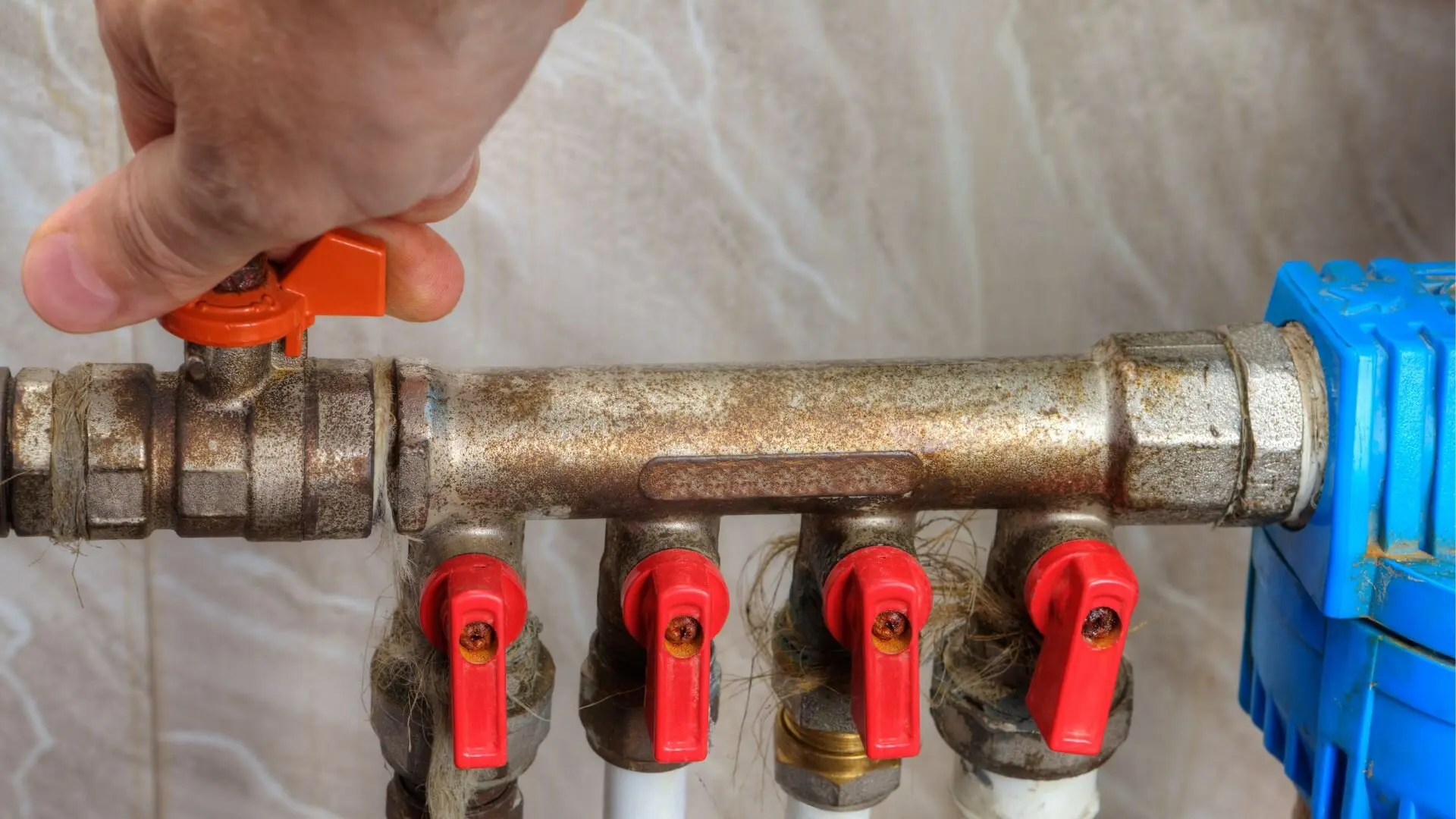
Even a partially closed valve can still allow a substantial amount of water through. You’ll need to shut the main supply off completely for total isolation. This also allows the emergency plumber to safely make repairs without risking electrocution. Shutting off the water at the first sign of leakage can significantly reduce the extent of damage.
Having the knowledge and access to instantly stop additional water from pouring into your home during plumbing emergencies gives you a huge advantage. Take the time to locate, label, and become familiar with operating your home’s main water shut-off. Your quick response can help avoid thousands in flood damage.
2. Unplug At-Risk Appliances
After you’ve turned off the main water supply, quickly unplug any nearby electrical devices that might get wet. Leaks near appliances such as washing machines, dishwashers, and basement electronics put them at high risk of short-circuits. This can result in electrical fires or electrocution, worsening the plumbing crisis.
Prevent avoidable electrical hazards by proactively unplugging water-threatened appliances and outlets. If located near the leak, washing machines, freezers, air conditioners, and other major appliances are top priorities. It is also advised to relocate smaller electronics like televisions and computers to higher, dry surfaces.
Don’t take risks with electronics around water. Simply unplugging threatened appliances prevents costly damage and dangerous electrical risks before the leak spreads. Though it may seem trivial, taking a few seconds to unplug at-risk electronics can prevent huge losses. With the proper precautions, your home and belongings will stay protected until the emergency plumber permanently contains the leak.
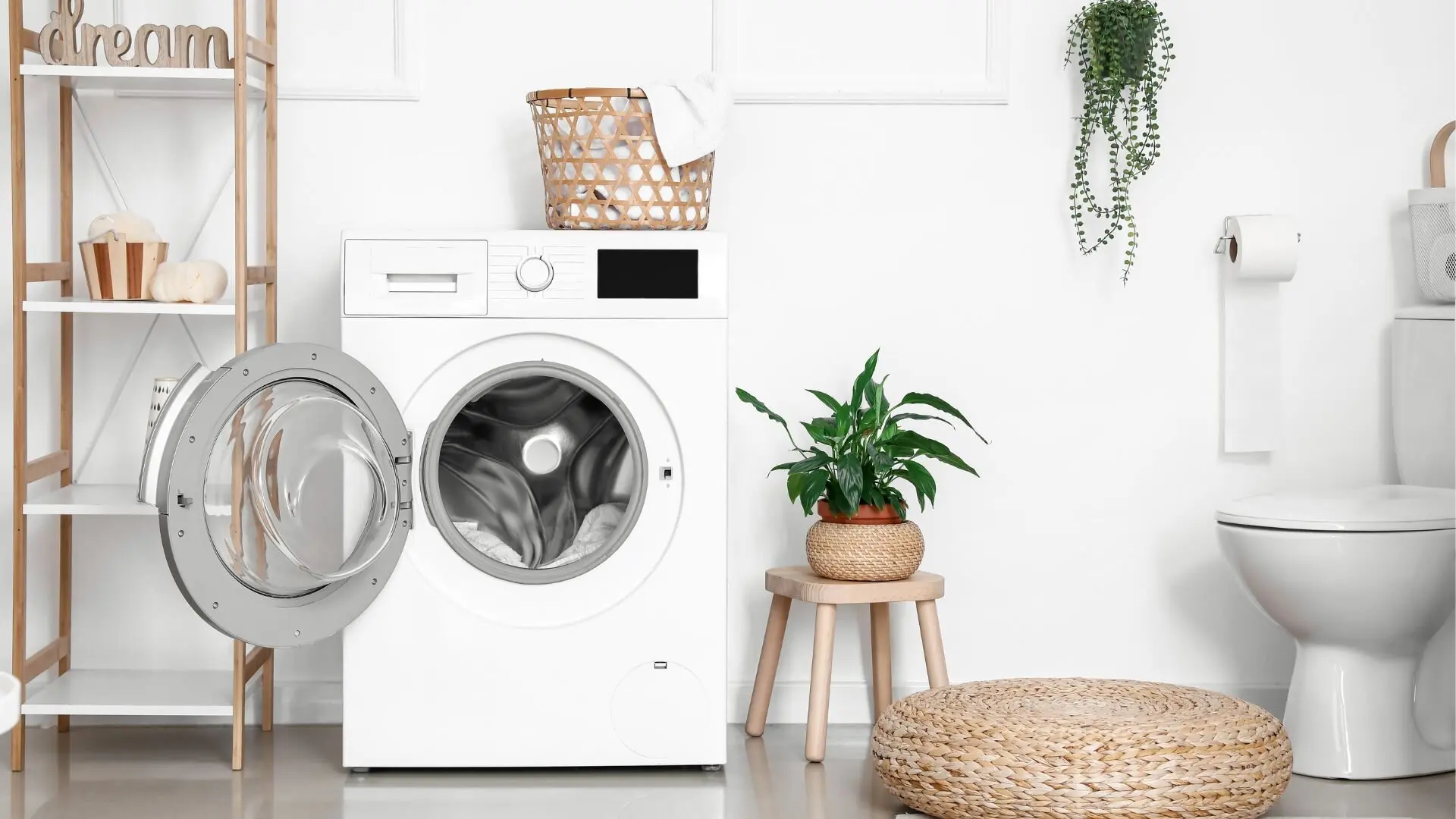
3. Protect Valuables from Water Exposure
Protect valuables from water exposure once the water supply is off and appliances are unplugged. Clean water can ruin carpets, warp floors, stain walls, and damage cherished belongings. Sewage backflows unleash health hazards and create an even bigger mess.
Relocate rugs, artwork, furniture, and other prized possessions away from areas at risk of water damage. Move items to higher elevations if possible. For smaller valuables like photos or books, cramming them into watertight plastic bins temporarily can prevent destruction.
Shielding valuables from contact with the water prevents unnecessary losses and heartbreak. The quicker you can move them out of harm’s way, the better. Don’t wait for items to get soaked before taking action. With a plumbing emergency response plan, you can proactively protect what matters most.
Though it requires some heavy lifting, keeping your valuables dry will pay off in the long run. You’ll prevent irreplaceable items from getting waterlogged, contaminated, or ruined. A bit of quick thinking and elbow grease makes a massive difference.
4. Deploy Towels to Absorb Excess Water
Once the main water line is disabled, appliances are unplugged, and valuables are protected, towels will be deployed to absorb excess water. Place towels around the leak source and at entry points where water flows, including doorways, vents, and low elevations where water pools.
Absorbent towels act as a barrier that prevents water from spreading into unaffected areas of the home. They soak water quickly, minimising puddles, overflow, and accidental slips. Just be sure to avoid overloading electrical outlets as towels become saturated.
The goal is to contain the water as much as possible while awaiting the plumber’s arrival. Towels also paddle floors and protect walls from water damage. Deploy them wherever needed to keep the flood under control. The less area impacted, the lower your repair costs will be.
With some spare bath and beach towels on standby, you can take charge of reducing the leakage footprint. Don’t let water flow freely while waiting for help. With some quick placement of absorbents, you can drastically limit the damage.
5. Address Slip, Fall, and Contamination Risks
The final priority is safely managing the hazards created by excess water itself. Flooded areas become prime locations for slips, falls, and contamination issues. Protect your family and home’s occupants when plumbing system emergencies strike.
First, clean up free-standing water as much as possible using a wet vac or mop. Anything more than a thin layer creates slipping risks. Cordon off slick areas with caution tape or cones to prevent accidents. Have all occupants wear shoes to avoid cuts from debris. And watch your step in all wet areas.
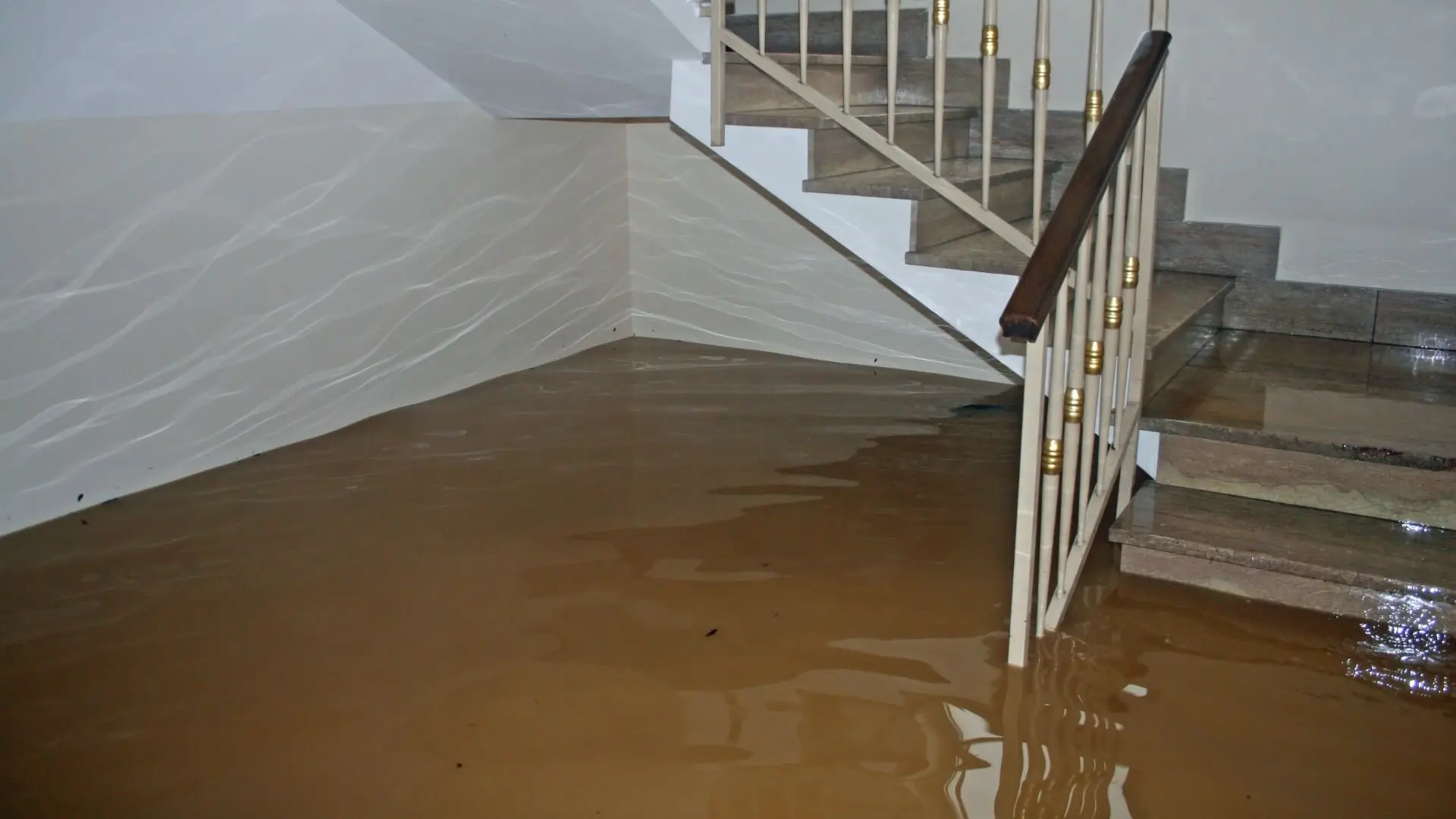
If sewage is mixed with the water, the contamination risks are greatly amplified. When cleaning up, use gloves, masks, and eye protection, and disinfect all surfaces afterwards. Depending on the severity, anything the water touches may require professional restoration services.
Exercising safety around wet and contaminated zones prevents avoidable injury, illness, or infection risks. With some common sense practices, you can keep people safe amidst plumbing chaos until the pros take over.
Be Ready to Respond When Disaster Strikes
When plumbing emergencies strike in your Perth home, every minute counts; taking swift and proper precautions during those critical moments can significantly reduce property risks and avoidable damage. Now, you’re equipped with expert tips to minimise the impacts until help arrives.
The next time a leaking pipe bursts, leak springs, or appliances overflow, follow these five key steps:
- Shut off the main water supply valve
- Unplug nearby electrical appliances in danger
- Move valuables out of flooding threat zones
- Deploy towels to absorb excess water
- Address slip, fall, and contamination hazards
Executing these preventative measures allows you to get ahead of the water damage as much as possible. Your quick response saves money, memories, assets, and health until the experts resolve the problem. Don’t leave your home’s fate up to chance - be prepared.
For highly experienced emergency plumbing services in Perth, contact the pros at Woolf Plumbing & Gas. Their rapid-response plumbers are available 24/7 to contain disasters of any size. Contact them today for reliable solutions to bursts, leaks, and overflows throughout the greater Perth region.
Protect what matters most by contacting our team immediately when the unthinkable strikes. We restore calm and order - no job is too big or small. Get through the crisis quickly and safely with Woolf Plumbing & Gas.


